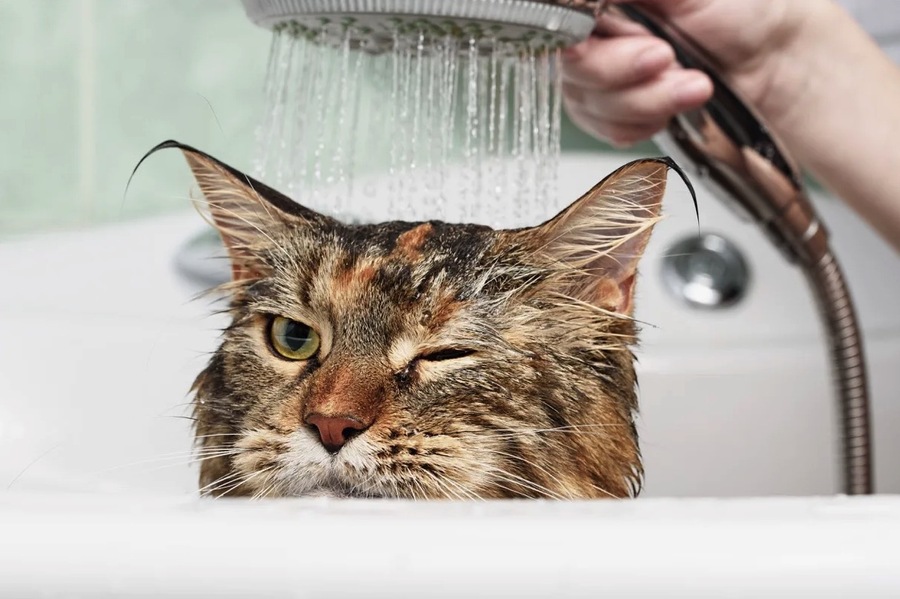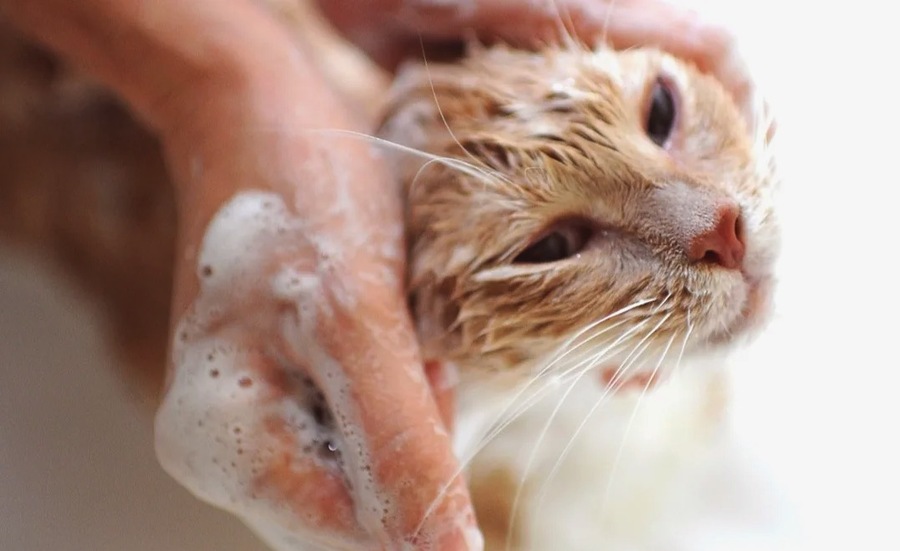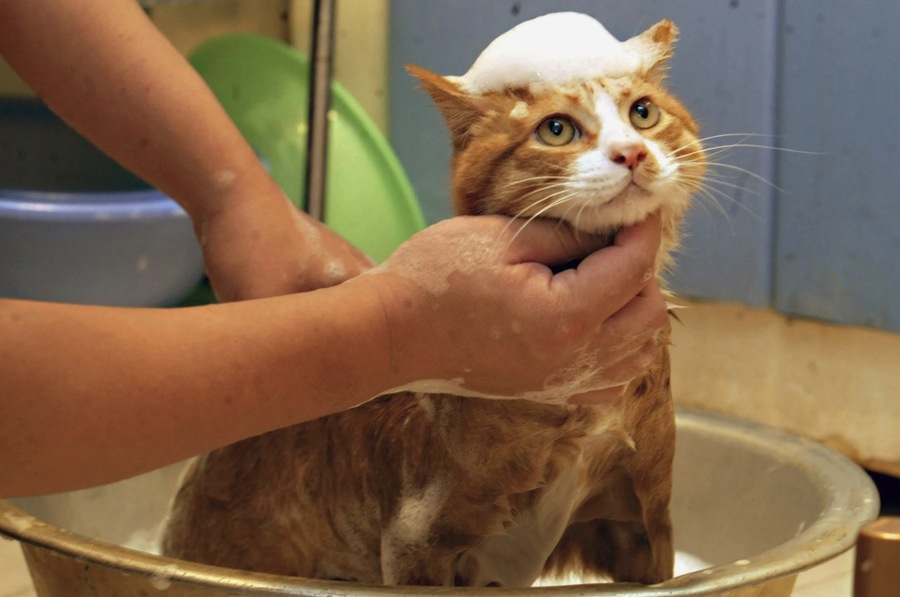When it comes to maintaining the health and cleanliness of your feline friend, choosing the right shampoo is essential. Cats, much like humans, have diverse grooming needs based on their breed, fur type, skin conditions, and personal preferences. This article will delve into the various types of shampoos available for cats, suitable ingredients for specific skin issues, and considerations for different fur types. This way you can choose the right shampoo for cat in Dubai. We’ll also touch on the importance of scent selection and the frequency of bathing your cat.
Types of Cat Shampoos
General Purpose Shampoo
These are mild and suitable for most cats. They clean the fur and skin without causing irritation and often contain soothing ingredients like oatmeal and aloe vera.
Medicated Shampoo
Medicated shampoos are designed to treat specific skin conditions. They might contain antifungal, antibacterial, or antiparasitic ingredients to address issues like fungal infections, bacterial dermatitis, or flea infestations.
Hypoallergenic Shampoo
Perfect for cats with allergies or sensitive skin, these shampoos are free from harsh chemicals, dyes, and fragrances that could cause irritation.
Flea and Tick Shampoo
These shampoos contain insecticides that kill fleas and ticks on contact. They often have ingredients like pyrethrins or permethrin to ensure effective pest control.
Conditioning Shampoo
Ideal for long-haired cats, conditioning shampoos contain ingredients that help detangle and soften the fur, making grooming easier and keeping the coat shiny and smooth.

Skin Conditions and Suitable Shampoo Ingredients
Dry Skin
Cats with dry skin benefit from shampoos containing moisturizing ingredients like glycerin, coconut oil, and oatmeal. These components help hydrate the skin and reduce flakiness.
Itchy and Inflamed Skin
For itchy and inflamed skin, look for shampoos with anti-inflammatory ingredients such as aloe vera, chamomile, and hydrocortisone. These help soothe the skin and reduce redness and discomfort.
Allergies
Hypoallergenic shampoos are a must for cats with allergies. Ingredients like oatmeal and aloe vera can provide a soothing effect, while the absence of dyes and fragrances minimizes the risk of allergic reactions.
Sensitive Skin
Cats with sensitive skin require shampoos that are gentle and free from irritants. Look for products with natural ingredients and no added chemicals, dyes, or fragrances.
Fleas and Ticks
Shampoos designed to combat fleas and ticks should contain insecticides like pyrethrins. Some also include soothing ingredients to reduce the irritation caused by bites.
Cat’s Coat Type: Texture and Length
Short-Haired Cats
Short-haired cats generally have fewer grooming needs compared to their long-haired counterparts. A general-purpose or hypoallergenic shampoo is usually sufficient. These shampoos clean the fur effectively without causing matting or buildup.
Long-Haired Cats
Long-haired cats require shampoos that help manage tangles and mats. Conditioning shampoos with detangling properties are ideal. These shampoos make it easier to comb through the fur and prevent knots, keeping the coat healthy and shiny.
Cat’s Reaction to Scents
Cats can be quite sensitive to scents. A shampoo with a strong fragrance might be off-putting or even cause stress to some cats. When choosing a scented shampoo, consider one with a mild, natural scent. It’s important to observe your cat’s reaction to the shampoo and discontinue use if you notice signs of distress or discomfort.
If your cat is particularly sensitive to smells, opt for an unscented shampoo. This minimizes the risk of irritation and ensures a more pleasant bathing experience for your feline friend.

Is Daily Bathing Necessary?
Unlike dogs, cats are excellent self-groomers and typically do not need frequent baths. In fact, bathing a cat too often can strip their skin of natural oils, leading to dryness and irritation. Generally, bathing a cat every 4-6 weeks is sufficient unless they get into something particularly dirty or have a medical condition that requires more frequent bathing.
For cats with skin conditions, your veterinarian might recommend a specific bathing schedule. Always follow professional advice to ensure your cat’s skin and coat remain healthy.
Conclusion
Choosing the right shampoo for your cat involves considering their fur type, skin condition, and sensitivity to scents. General-purpose shampoos work well for most cats, while medicated and hypoallergenic options cater to specific needs. Long-haired cats benefit from conditioning shampoos that manage tangles, while short-haired cats can use milder formulas. Always be mindful of your cat’s reaction to scents and avoid over-bathing to maintain their natural skin balance. With the right shampoo, your cat’s coat will remain healthy, shiny, and clean, contributing to their overall well-being.

Biker, hustler, fender owner, reclaimed wood collector and critical graphic designer. Performing at the crossroads of minimalism and computer science to save the world from bad design. I prefer clear logic to decoration.



